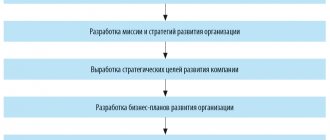Advanced training – what is it?
The Labor Code contains articles that deal with the concepts of an employee’s qualifications, training and compliance with the position held or assigned duties. For example, when introducing new technologies or equipment into the production process, the employer needs to check whether the employee’s qualifications are suitable. In other words, to perform a particular type of activity, a specialist must have specific knowledge or skills.
It is assumed that a diploma of specialized secondary or higher education is a permanent document indicating the necessary training. But in many professional industries, situations are possible when qualifications need to be either confirmed or improved. It is this process that is called advanced training. In general, advanced training is one of the options for additional professional education, which can only be received by persons who have previously received either secondary specialized or higher education, and can also confirm this with relevant documents.
It should also be understood that advanced training, although it belongs to the system of additional education, is carried out exclusively in a previously acquired profession. For example, a builder can only improve his qualifications in the “Builder” specialty, and a fitter does not have the right to improve his rank in the “Fitter” profile if he does not have the appropriate diploma.
The effectiveness of advanced training and retraining courses
Many employers do not pay due attention to this issue, because they believe that the employee must independently improve his skills, but if the level of productivity falls, then the process of recruiting new employees occurs. This method is fundamentally incorrect. Experience shows that it is extremely difficult to find specialists of a decent level and to unite the team so that it works as a single whole. It is for this reason that additional training of personnel is a very important point in eliminating staff turnover, the need to change specialists and the active development of production as a whole.
If the company cannot allocate a significant amount of funds to carry out the process of fully training employees on courses from certified organizations, you can use the options of seminars, trainings and various options for providing information on innovations in remote access. This training option can only be used as a temporary element of increasing the level of specialists’ capabilities to use certain innovations.
In any case, if you are striving to increase productivity, and also strive to ensure that your production is staffed with experienced, skilled and knowledgeable people, you will have to organize a standard process of undergoing qualified training in certified and licensed training centers. Naturally, such training will require certain investments, but practice shows that investments of this format pay off quite quickly, as specialists begin to work better, it is possible to introduce certain innovations into the enterprise, which, in principle, becomes the basis for effective development.
Types and options for advanced training
To master new levels of the profession, a specialist first needs to choose which and where to take advanced training courses. In the system of additional professional education, there are three types of such training:
- short-term;
- long-term;
- thematic.
The main difference between them is the duration of the educational process:
- for short-term courses – 72 academic hours;
- for thematic ones – from 72 to 100 hours;
- for long-term ones – more than 100 hours.
The first two options assume that after completing the training, specialists will receive a Certificate of short-term advanced training. If you take courses that last more than 100 hours, the specialist receives a Certificate of Long-Term Advanced Training.
The main difference here is that short-term professional development is needed to fill a specific knowledge gap. Certification of short-term courses, as a rule, does not allow one to apply for a higher position.
Long-term advanced training courses give the right to occupy a leadership position or any other position. This is especially true for specialists joining SROs - self-regulatory organizations. These include, for example, lawyers, auditors, accountants, etc. Therefore, the heads of organizations participating in the SRO are obliged to send their employees to advanced training every three or five years and undergo it themselves.
Step-by-step instructions for advanced training and retraining of specialists
- Step 1: Determine personnel needs
The procedure can take place at the level of assessing the activities of the entire company:
- Assessment of the introduction of new technologies;
- Analysis of the possible application of new techniques and the release of new products;
- The need to modernize production, to organize new divisions;
- The opening of new activities and the emergence of new jobs.
Through such a detailed analysis, it is possible to clearly determine what needs for professional development exist in the company. The same analysis can be carried out for structural divisions and for each workplace. After which, the procedure for setting goals can be carried out and, based on the information received, the process of selecting those companies that can provide the required level of skills, abilities and knowledge specifically to your staff begins.
- Step 2: Budgeting
Once the process of identifying specific needs has been established, the budgeting process begins. It is necessary to clearly identify those areas that require maximum improvement. Based on the data received, the budget is reviewed and a list of when and who to send for training is determined. Here you need to be extremely careful in order to assess the situation in the company as objectively as possible and choose the right direction for development.
- Step 3: Define Methods
Today, webinars, seminars and lectures have become very relevant. For a company, such training options are the most rational, since they allow you to obtain optimal results with minimal investment of money and time. However, a more in-depth process of studying all the information takes place in specialized courses. As a rule, the training lasts at least 72 hours and the person receives a specialized diploma. This training option can be used not only as a basis for increasing the level of specialists’ skills, but as a motivational tool. The thing is that the presence of such a document provokes an increase in demand in the employee labor market. And employees are interested in attending such courses.
- Step 4: Selecting an educational center
Naturally, this aspect must be studied down to the smallest detail. As you know, there are quite a lot of offers on the market. But, you need to choose a company that has a license to operate, provides affordable prices and at the same time offers high-quality training. In order to make a rational and competent choice, study all offers, reviews, and evaluate the proposed training programs.
- Step 5: Development of professional development programs
You must understand that at the moment courses may have a different focus, but you must clearly choose those areas that suit the needs of your particular enterprise. In certain cases, it is possible to carry out the process of choosing a course on a similar topic with the addition of special courses in certain subjects. Here you need to be very careful. After all, the education received should provide not only a document, but also the necessary level of knowledge, on the basis of which a person will be able to perform completely different duties in the future or will be able to increase the level of his productivity.
- Step 6: Analysis of the results obtained
Of course, the results obtained must be analyzed. If attending certain courses has become solely a cost basis and has not brought any improvement to the enterprise, then this training option should be abandoned, paying attention to more effective methods for increasing the level of skills, knowledge and abilities.
Is advanced training necessary?
The essence of advanced training courses is for the employee to confirm his professional level or improve his knowledge.
For this purpose, the Ministry of Labor and Employment of the Russian Federation has introduced professional standards. Figuratively speaking, professional standards are a set of regulations that list all the requirements for the training of a specialist necessary for the operation of the educational base, the principles and methods of conducting labor activities.
It is professional standards that require advanced training. In Russia there are a number of professions and specializations for which this procedure is mandatory. All other specialists can take advanced training courses either at will or if necessary.
Specialists for whom advanced training is mandatory include:
- teaching staff;
- medical workers;
- mining industry specialists;
- state civil servants;
- judges and prosecutors.
According to the approved professional standard for a teacher, any teacher or kindergarten teacher must confirm their knowledge not once every five years, like other specialists, but every three years. In other words, advanced training documents also have expiration dates - three and five years, respectively. Therefore, the procedure for advanced training is regular.
ANO DPO "Training Center Med-Art"
Moratorium on a certificate - is 144 hours of advanced training needed in 2020?
Order on a moratorium on obtaining specialist certificates until the end of 2020. What kind of order is this and what should medical workers do now?
An order has been issued on a moratorium on obtaining specialist certificates until the end of 2020. What kind of order is this and what should medical workers do now?
The government decided to change the procedure for extending license terms in 2020. In accordance with Resolution No. 440 of April 3, 2020, in areas of activity requiring mandatory permitting control, the validity of licenses, certificates, accreditation, and registration is extended for one year. This rule applies to permits that expire or have expired between April 6 and December 31, 2020.
In addition, an appropriate licensing regime was established for medical activities. The new requirements are regulated by Order of the Ministry of Health of the Russian Federation dated April 14, 2020 No. 327n “On the specifics of admission of individuals to carry out medical activities and (or) pharmaceutical activities without a specialist certificate or a specialist accreditation certificate and (or) in specialties not covered by a specialist certificate or certificate of accreditation of a specialist." Paragraph 3 of Order No. 327n establishes that specialist certificates whose validity period expires from April 6, 2020 inclusive (the date of entry into force of Order No. 440) are extended for 12 months from the date of expiration of their validity period (i.e., for example, if the certificate expires on April 27, 2020, then it is extended until April 27, 2021 inclusive).
How will this affect healthcare workers?
Until the end of 2020, a moratorium has been introduced on obtaining a specialist certificate or accreditation certificate. Every medical worker whose permit documents are expiring has the right to use it. But it is important to understand that in this case the term “moratorium” does not mean a ban, but a deferment of obligations for a certain period. In other words, Order of the Ministry of Health No. 327n only provides the opportunity to defer the obligation to certify and accredit a specialist for one year. But after a set time, the health worker will have to fulfill his obligations in full.
Doctors and nursing staff should take certain points into account.
Those. medical workers who will not undergo training in 2020 are guaranteed to be included in the accreditation system in 2021. This is due to the fact that they are still planning to implement the new competency assessment system according to the previously established schedule. Certification and accreditation postponed by the moratorium will lead to an increase in the number of specialists who will need to pass accreditation in 2021. As a result, it is possible to foresee difficulties in the work of accreditation centers, changes in the order of stages or their timing. In addition to the already mentioned moratorium, Order of the Ministry of Health No. 327n also established the possibility of attracting medical workers with different specialty profiles to provide medical care to patients with a new coronavirus infection. To do this, medical staff will need to undergo preliminary training in short-term additional professional programs.
The question arises - what should you choose - a moratorium or training?
There are several options here: 1. Continue training in the same manner when the deadline approaches. Afterwards receive a certificate of advanced training without a certificate. In January 2021, undergo accreditation by presenting a certificate of advanced training for 144 hours.
2. Log in to the CME system and now start accumulating points for accreditation by taking annual refresher courses.
3. Do nothing now and wait until the end of the year, and then start deciding what to do next. (But in this case, you by default agree to deferred accreditation issues).
4. Complete professional retraining now and start working without a certificate, because now this is allowed by Order of the Ministry of Health of the Russian Federation dated April 14, 2020 No. 327n “On the peculiarities of admission of individuals to carry out medical activities and (or) pharmaceutical activities without a specialist certificate or a specialist accreditation certificate and (or) in specialties not covered by a specialist certificate or certificate of accreditation of a specialist." You can work this way until January 1, 2021. After this, you will need to undergo accreditation by presenting a diploma of professional retraining.
5. Take advanced training courses on current programs related to the current situation with Covid-19 and work in a new direction. Courses must be at least 36 hours long.
You can get all of the listed training options at the ANO DPO “Med-Art Training Center.” All the programs we offer for medical workers are remote, which will save you time and you won’t even have to contact us in person. Which is very important in the current situation.
You can find out more about training options for advanced training programs from our managers by phone.
8 (342) 248-00-45 or leave a request on the website for a call back SIGN UP
How to choose the right courses
The range of offers today has become simply phenomenal. Therefore, the choice should be rational and thoughtful:
- Choose those programs that suit your needs. That is, initially analyze the work of the production or company, carry out the process of determining the main directions of development, and then, based on the information received, try to choose those courses that suit the assigned tasks and goals;
- Be sure to study all program blocks to make sure that you are looking at a modern education option and not an outdated education system. This way, you can eliminate unnecessary spending on training that will not be effective;
- Remember that the most important thing in this process is that the employee receives not a diploma, but knowledge, therefore, choose those companies that are licensed, certified, and also have a lot of grateful reviews from their students;
- Try to opt for remote programs, as they allow employees to improve themselves without the need to take leave. That is, the learning process occurs without interruption from production.
To choose the right program, you need to study the issues that it considers, as well as evaluate the materials that will be offered to the employee for study. There is also the opportunity to sign a cooperation agreement with training centers in the future. Through such an agreement, you can organize the process of systematically improving the skills of various employees in production or in a company, and you can also minimize the expenditure of financial resources. Since the presence of an agreement can lead to the formation of significant discounts on training programs.
Employees who want to become more relevant and gain additional development elements in the future can take advantage of self-paced training at their own expense.











